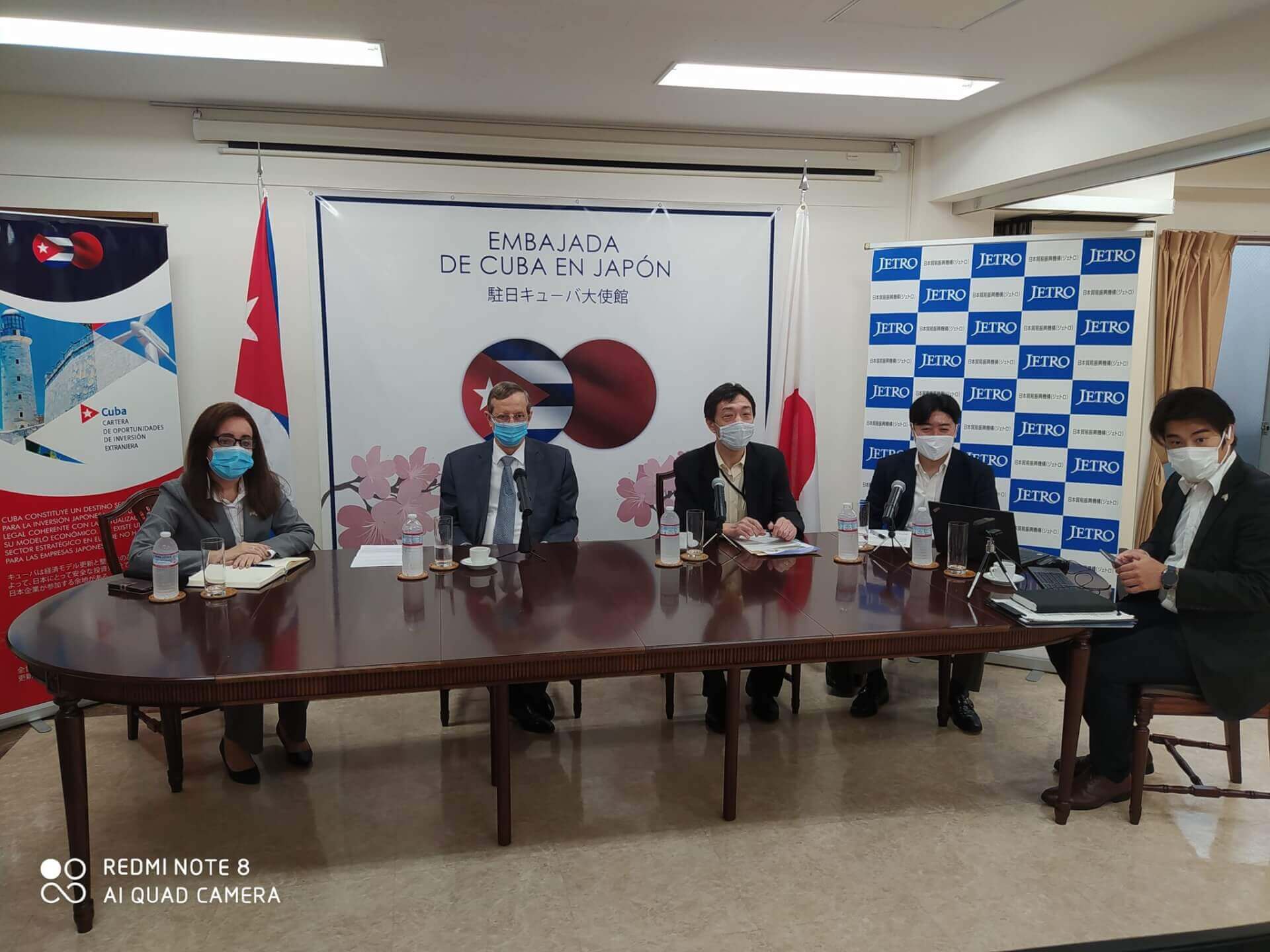Japan External Trade Organization’s (JETRO) executive vice-president Yoshitaka Hoshino held a conference with Cuban representatives. In attendance was Cuba’s Ambassador to Japan, Miguel Ramirez Ramos. Meanwhile, Cuban Chamber of Commerce president Antonio Carricarte, PRO CUBA (an organization promoting trade and investments in Cuba) Deputy Director, Economic Commercial Counselor Katia Monzon, and representatives from Cuban foreign trade companies attended via videoconference.
At the meeting, Cuban representatives emphasized on the importance of food production and renewable energy, and also of the country’s prioritization of its pharmaceutical and biotechnology industries. Ambassador Ramos suggested that the two nations could expand trade in elver and eel production, and beekeeping products.
Celebran con éxito reunión virtual @Camara_Comercio de #Cuba y organización de #Japon para comercio exterior (JETRO) a fin de impulsar intercambio económico e/ ambas naciones.https://t.co/KuY35XGDZT@MINCEX_CUBA @pro_cuba @Jetro_Mexico @CubaMINREX pic.twitter.com/BK9DuXmg0Y
— EmbaCubaJapon (@embacubajapon) July 29, 2020
Hoshino lauded Cuba’s response to the coronavirus pandemic, and stressed that JETRO holds a close relationship with Cuban companies even though it does not have a permanent presence on the island itself. The Japanese side called on Cuban companies to subscribe to its Trade Tie-up Promotion Program (TTPP), through which JETRO allows people both within Japan and outside to go through tens of thousands of business proposals and find Japanese business partners.
As of 2016, there are 94 Japanese nationals residing in Cuba. According to 2017 data from the Japanese Ministry of Foreign Affairs (MOFA), Japan exports ¥4.72 billion ($44.8 million) worth of goods and services to Cuba, comprising largely of electrical machinery and precision instruments. On the other hand, Cuba exports roughly ¥1.55 billion ($14.7 million) worth of goods and services to Japan each year, which is mostly made up of tobacco, fish products, coffee, and non-ferrous metallic ores.
Japan has also sought to support the Cuban economy—which has for years been struggling due to US sanctions—through loans. In fact, in 2002, Cuba defaulted on $750 million in Japanese loans. As a sign of its goodwill, in 2016, Japanese Prime Minister Shinzo Abe forgave ¥120 billion ($1.14 billion) out of the ¥180 billion ($1.71 billion) Cuba still owes to Japan. Abe also announced plans to provide grants worth ¥1.3 billion ($12 million) towards medical aid and the establishment of a local office for the Japanese International Cooperation Agency.
Cuba has the world’s second-highest number of doctors per 1,000 people, with a rate of 6.723, well in excess of Japan’s 2.297, for instance. In fact, during the ongoing pandemic, Cuba has sent doctors to well over 20 countries all across the globe. However, while its medical industry is well staffed and medical services in the country are free, US sanctions have led to massive shortages in equipment, supplies, and drugs, which Japanese aid aims to address.
It is hoped that these latest interactions between Japanese and Cuban businesspeople and diplomats will foster an even closer relationship between the two countries. Cuba stands to gain a crucial new partner to mitigate the impacts of US sanctions. Japan, on the other hand, can position itself as a responsible and benevolent world power.

